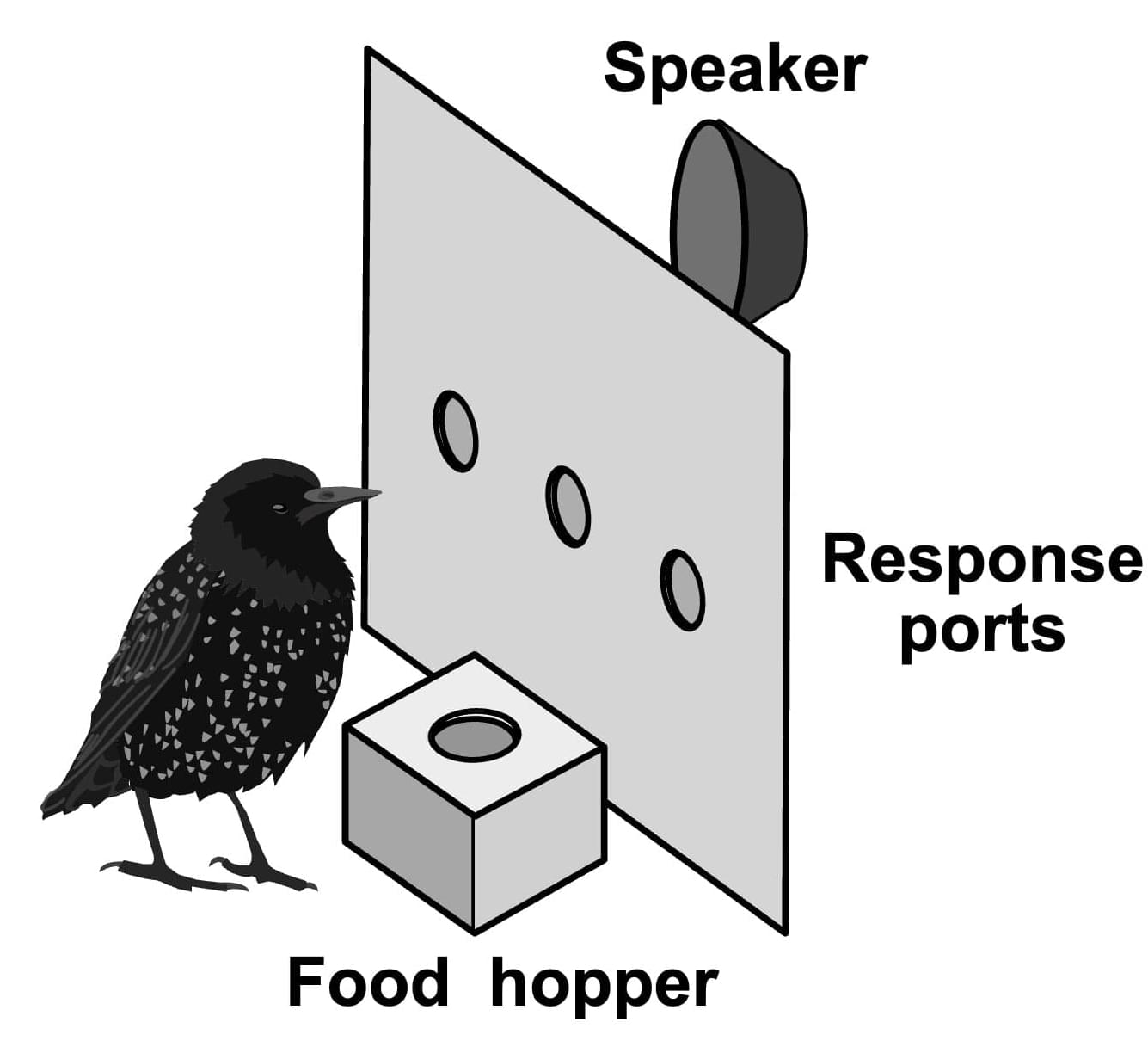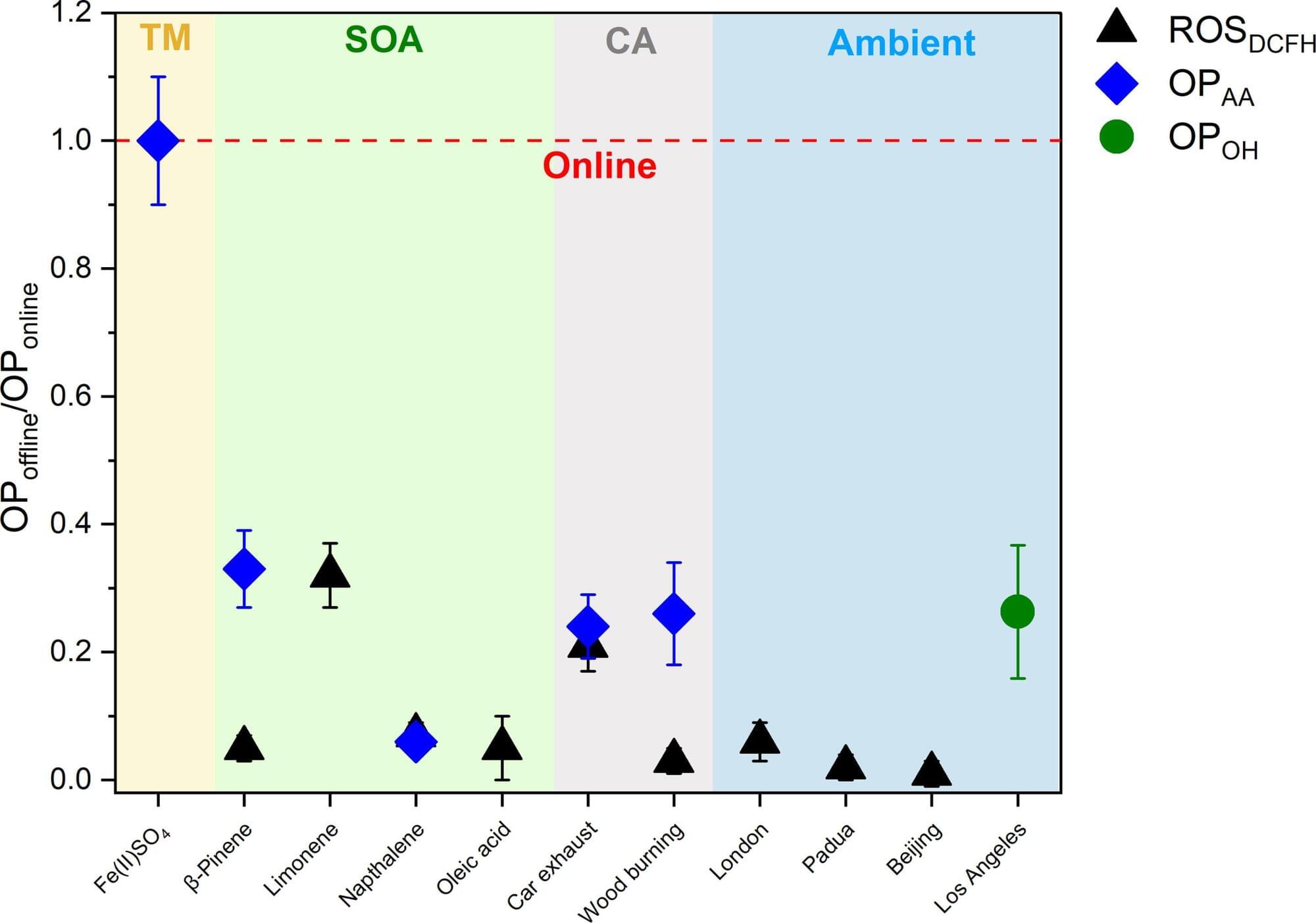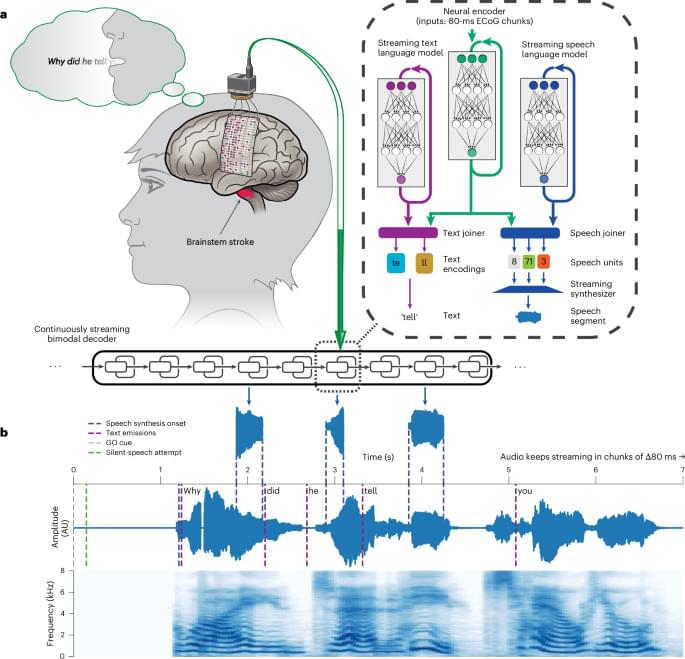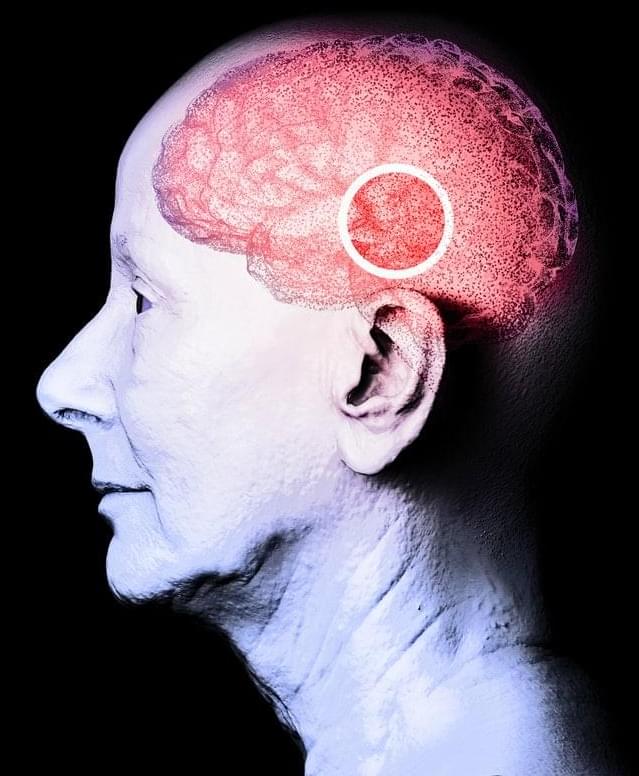1999/ 2000 documentary 56 minutes. Primal Eye/ Median Vision Theory of the early evolution of self referential consciousness and dreaming. Dir…
Category: neuroscience – Page 143



How perceptions are influenced by expectations: Songbird study draws parallels with human speech processing
Past neuroscience and psychology studies have shown that people’s expectations of the world can influence their perceptions, either by directing their attention to expected stimuli or by reducing their sensitivity (i.e., perceptual acuity) to variations within the categories of stimuli we expect to be exposed to.
While the effects of expectations on perceptions are now well-documented, their neural underpinnings remain poorly understood.
Researchers at University of California San Diego (UC San Diego) carried out a study involving songbirds aimed at better understanding how expectation-fueled biases in perception shape brain activity and behavior.

Real-time analysis reveals a much higher proportion of harmful substances in particulate matter than assumed
People breathing contaminated air over the course of years are at greater risk of developing numerous diseases. This is thought to be due to highly reactive components in particulate matter, which affect biological processes in the body. However, researchers from the University of Basel, Switzerland, have now shown that precisely these components disappear within hours and that previous measurements therefore completely underestimate the quantities in which they are present.
From chronic respiratory problems to cardiovascular diseases, diabetes and dementia, health damage caused by particulate matter air pollution is wide-ranging and serious. The World Health Organization (WHO) estimates that over six million deaths a year are caused by increased exposure to particulate matter.
The chemical composition of these tiny particles in the air, which come from a wide range of both anthropogenic and natural sources, is highly complex. Which particles trigger which reactions and long-term diseases in the body is the subject of intensive research.



Brain Implant ‘Streams’ a Paralyzed Woman’s Thoughts as If She’s Speaking in Near Real Time
The system, which also synthesizes her voice, takes no more than a second to translate thoughts to speech.

Mapping brain development at the protein level in unprecedented detail
Researchers at the University of Virginia have created the first comprehensive protein-level atlas of brain development, providing unprecedented insight into how the brain forms and potential implications for understanding neurological disorders. The study, published in Nature Neuroscience, analyzed over 24 million individual cells from mouse brains, revealing detailed molecular pathways that guide brain development from early embryonic stages through early postnatal development.
The research team, led by Professors Christopher Deppmann and Eli Zunder, used an innovative technique called mass cytometry to track 40 different proteins across various brain regions and developmental stages. The approach provided a more detailed view of cellular function than previous studies that primarily examined RNA.
“While RNA studies have given us important insights, proteins are the actual workforce of cells,” explained Deppmann, a professor in the College and Graduate School of Arts & Sciences’ Department of Biology. “By studying proteins directly, we can better understand how cells are functioning and communicating during brain development.”